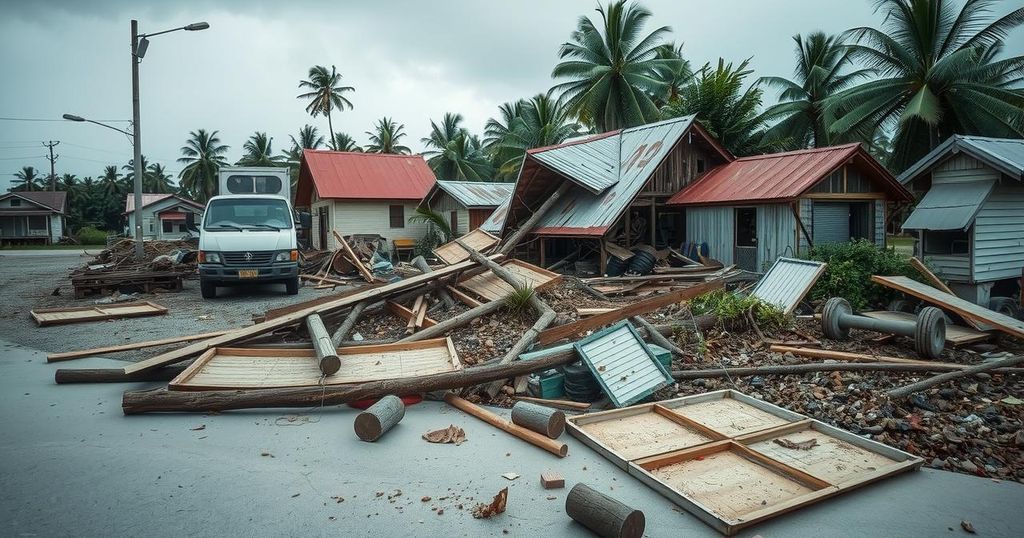Devastation Unfolds in Mayotte as Cyclone Chido Claims Lives and Homes

Cyclone Chido has struck the French territory of Mayotte, causing extensive destruction and a feared death toll in the thousands. Rescue efforts are complicated by damaged infrastructure, particularly in impoverished neighborhoods. With the cyclone recorded as a Category 4 equivalent, its intensified nature raises concerns about climate change effects on storm severity.
Rescue operations are underway in Mayotte, a French overseas territory in the Indian Ocean, following the devastation wrought by Cyclone Chido, which has been described as the most severe storm to impact the region in nearly a century. Despite the official death toll being reported at 14, local officials express grave concerns that the casualties could reach into the hundreds or possibly thousands, with approximately 300,000 residents on the densely populated island. The French authorities have indicated extensive damage, particularly to poorly constructed neighborhoods that suffered the brunt of the cyclone’s force, resulting in flattened buildings and significant harm to key infrastructures, such as airports and hospitals.
In the aftermath of Cyclone Chido, military and medical teams, along with essential supplies, have been dispatched from France and the nearby island of Reunion to support rescue efforts. Many of the 100,000 individuals residing in informal slum settlements were reportedly left homeless due to the storm’s destruction. The territory of Mayotte, acknowledged as the poorest within any EU dominion, continues to attract economic migrants from surrounding regions, largely owing to the welfare benefits provided by the French government.
Cyclone season in the southwestern Indian Ocean commenced at the beginning of December, with Chido making landfall in Mayotte on Saturday as a powerful Category 4 equivalent storm. The cyclone subsequently impacted Madagascar, located just south of Mayotte, late on Sunday. Reports suggest that climate change may have exacerbated Chido’s intensity, as rising temperatures in air and sea are believed to contribute to the formation of increasingly powerful storms, even though the overall number of storms annually has not seen a significant rise in recent decades.
Cyclone Chido has become a critical event in the southwestern Indian Ocean, highlighting the vulnerabilities of territories such as Mayotte. Serving as a prime example of impact resulting from climate phenomena, Chido is indicative of broader trends where storm intensity is increasing even as the frequency does not show a significant upward trend. Mayotte, economically disadvantaged, has poorly constructed housing that exacerbates the impacts of such natural disasters. Its socio-economic context renders it ill-equipped to handle the fallout from severe weather, necessitating international assistance. The imminent need for aid underscores the ongoing challenges that impoverished regions face in the wake of natural disasters, particularly in high-risk cyclone seasons.
In summary, Cyclone Chido has inflicted devastating damage on the French overseas territory of Mayotte, with fears of thousands dead amidst extensive destruction of infrastructure and homes. The current rescue efforts, bolstered by military and medical interventions from France and Reunion, highlight the dire conditions faced by the residents of Mayotte. The event also raises pressing concerns about the role of climate change in increasing the intensity of cyclones, warranting greater attention to the preparedness and resilience of vulnerable territories during cyclone seasons.
Original Source: www.cbsnews.com








